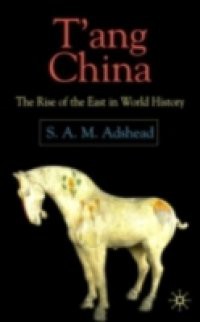China's role in world history is again controversial thanks to Andre Gunder Frank's Re-Orient: Global Economy in the Asian Age. By contrast, this book presents an alternative interpretation of that role, less exclusively economic, more broadly based, and focused on the T'ang period, one of China's acknowledged golden ages. It shows how a different China, Buddhist or Taoist rather than Confucian, aristocratic as much as meritocratic, achieved, through openness to the outside world and partnership with its elites, a multiple pre-eminence in politics, economics, society and the intellect, not unlike that enjoyed by the United States today. Within a looser web of globalization, the T'ang period and its dynamics offers a distant mirror of our own time. An argument in world history may thus cast light on issues in contemporary politics.

